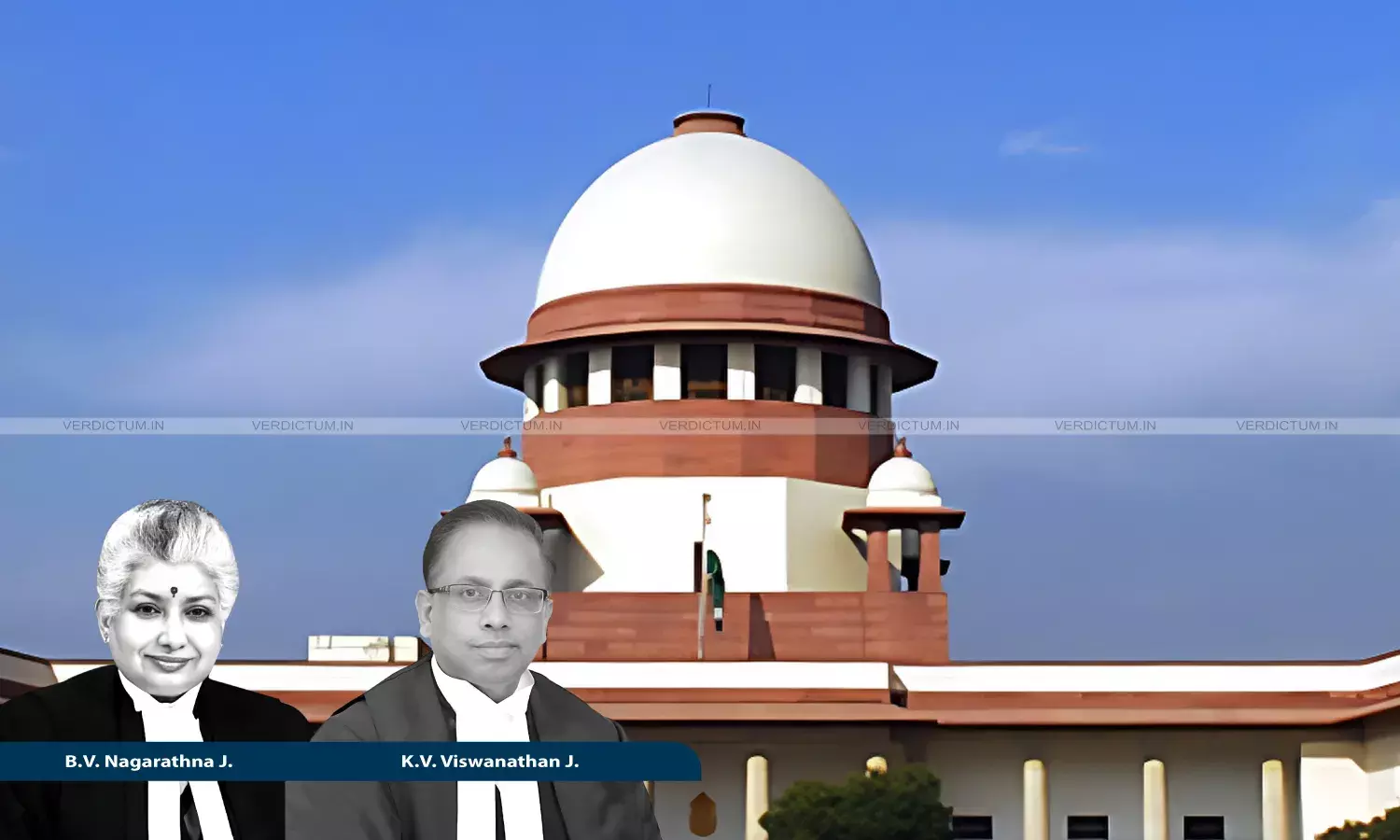Heated Neighbourhood Quarrels Do Not Amount To Abetment To Suicide Without Clear Intention Or Instigation: Supreme Court
The Court held that routine quarrels or heated exchanges between families, absent evidence of instigation or intent, cannot be construed as abetment to suicide under Section 306 IPC.

Justice B.V. Nagarathna, Justice K.V. Viswanathan, Supreme Court
The Supreme Court has ruled that routine quarrels or heated exchanges between neighbours cannot, by themselves, establish the offence of abetment to suicide under Section 306 of the Indian Penal Code unless there is evidence of clear intention or instigation on the part of the accused.
The Court was hearing an appeal against a conviction, where the appellant had been accused of abetting the suicide of a neighbour following disputes between the two families.
A Bench comprising Justice B.V. Nagarathna and Justice K.V. Viswanathan observed: “…we are not able to persuade ourselves to hold that when the appellant’s family and the victim’s family had heated exchanges, there was any intention to abet or to cause any member of either family to take their own life. These quarrels occur in everyday life, and on facts we are not able to conclude that there was an instigation on the part of the appellant to such an extent that the victim was left with no other option but to commit suicide.”
Advocate Sharanagouda Patil appeared for the appellant, while the State was represented by Advocate D. L. Chidananda.
Background
The case arose from a series of disputes between the appellant’s family and the victim’s family, which culminated in the victim’s suicide. The trial court had convicted the appellant under Section 306 IPC, holding her responsible for abetting the act. The conviction was upheld by the High Court, prompting the present appeal before the Supreme Court.
Court’s Observations
Relying on precedents set in Madan Mohan Singh Vs. State of Gujarat and Another (2010), the Supreme Court reiterated that “in order to bring out an offence under Section 306 IPC specific abetment as contemplated by Section 107 IPC on the part of the accused with an intention to bring about the suicide of the person concerned as a result of that abetment is required. It was further held that the intention of the accused to aid or to instigate or to abet the deceased to commit suicide is a must for attracting Section 306.”
The Court, applying this test to the present case, found itself unable to conclude that “there was any intention to abet or to cause any member of either family to take their own life.”
Conclusion
Allowing the appeal, the Supreme Court set aside the findings of the trial court and the High Court, acquitting the appellant of the charge under Section 306 IPC.
Cause Title: Geeta v. State of Karnataka (Neutral Citation: 2025 INSC 1089)
Appearances:
Appellant: Advocate Sharanagouda Patil
State: Advocate D. L. Chidananda.


